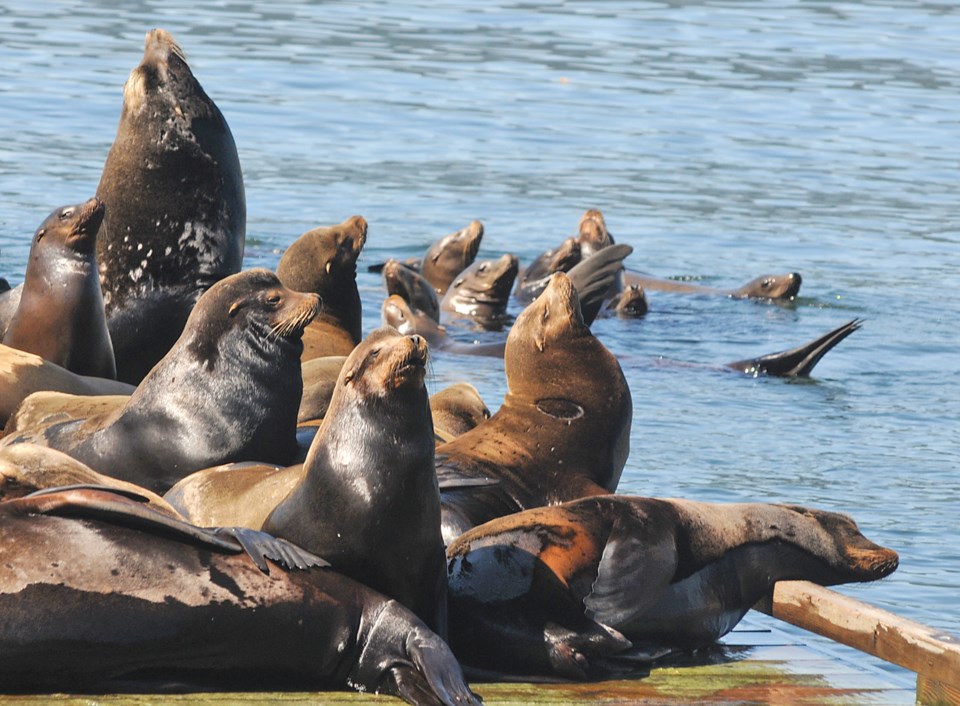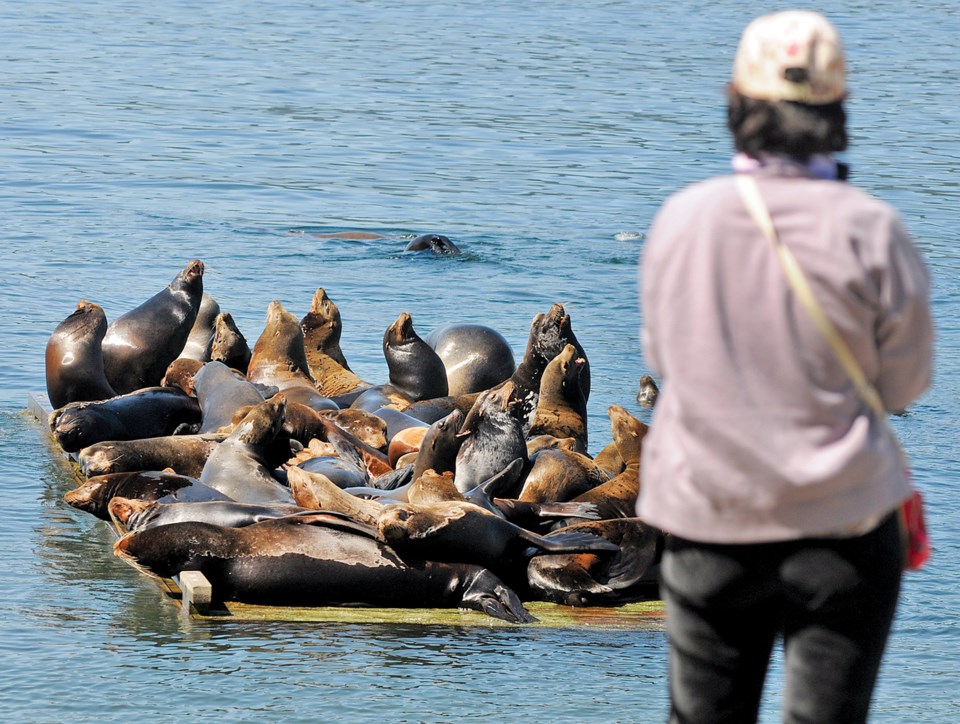A raft of rowdy California sea lions has taken over a raft in West Vancouver.
The marine mammals can be seen, or more likely heard, on a private float in Garrow Bay, next to Whytecliff Park.
They showed up a little over a week ago, said David Cottrell, who lives nearby. And in the last couple days, they’ve taken furnished lodgings on the float.
Oftentimes, the 20 to 30 sea lions are just lazing cheek-to-jowl on the raft and slipping into the bay to eat. Mainly though, Cottrell said, they’re barking.
“Are they ever noisy,” he said. “We’ve got all the windows and doors closed, but you can still hear them pretty loud and clear…. They pretty much go all night long.”
Melody Noble, another neighbour living in the cacophony, said the noisy neighbours have been amusing.
“They bark all the time, all night, all day and it’s awesome,” she said with a laugh. “But it’s quite, quite loud.”

Vancouver Aquarium marine mammal expert explains
While some neighbours speculated the non-stop barking may have been an indication of mating behaviour, Lindsaye Akhurst, manager of the Vancouver Aquarium’s Marine Mammal Rescue Society, said that isn't the case. Almost all of the sea lions seen around B.C. waters now are males. The females and their pups are still on the Oregon and California coast.
“So, it’s basically a big bachelor pad,” Akhurst said.
And they aren’t here to just to disrupt our sleep patterns and Zoom meetings. California sea lions and stellar sea lions show up in B.C.’s waters twice a year – when herring spawn in the spring and when salmon return in the fall.
“Like most animals in nature, they go where the food is,” Akhurst said.
Some scientists believe the males migrate north to leave more food available to the females and young near their home rookeries.
More often, the sea lions head over to western Vancouver Island. Akhurst said this year, however, they’ve been getting more calls for injured sea lions around the Vancouver area, which is a sign they are finding plenty of fish to feed on.
“Which is great to know – that Howe Sound is kind of flourishing again, after not being a place where many marine life [species] had visited for years,” she said. “It’ll be interesting to know if this was just a one-off year or if this is going to be a new, specific area for them, seasonally.”
As for the reason behind the non-stop barking: They just like to do it, Akhurst said.
“It’s how they communicate with one another,” she said. “They’re very gregarious – very vocal all the time and have large personalities, that’s for sure.”
Folks who are curious about the sea lions should keep their distance though, both for their sake and the animals’. Anyone who witnesses people disturbing the wildlife should report it to Fisheries and Oceans Canada, Akhurst said, by calling 1-800-465-4336.
A much safer way to see a sea lion up close is to meet Señor Cinco, a California sea lion rescued by the marine mammal rescue society in 2017 after he was found on distress on a local beach. When he had been stabilized, they realized he was unable to see. A closer examination and x-ray found the reason why – a bullet fragment in his head. Yet Señor Cinco continues to thrive at the Vancouver Aquarium, Akhurst said.
“He’s an amazing ambassador for his species, and also our program too,” she said.
It’s hard to guess how long the sea lions will stay in West Van, Akhurst said, but they most certainly will go as mating season arrives in the summer.
Noble said she isn’t in a hurry to see them leave because they are a visible sign of a healthy environment off West Vancouver.
“Obviously our waters are getting cleaner and quieter and more friendly for the sea life,” she said. “So, I’m so happy for that.”
She does though feel for anyone trying to walk their dog nearby.
“Their dogs are dragging them down to the beach instead of just walking the roads. So I do feel sad for people with dogs because it is quite the interruption,” she said. “The poor dogs in the neighborhood are going crazy over it.”




